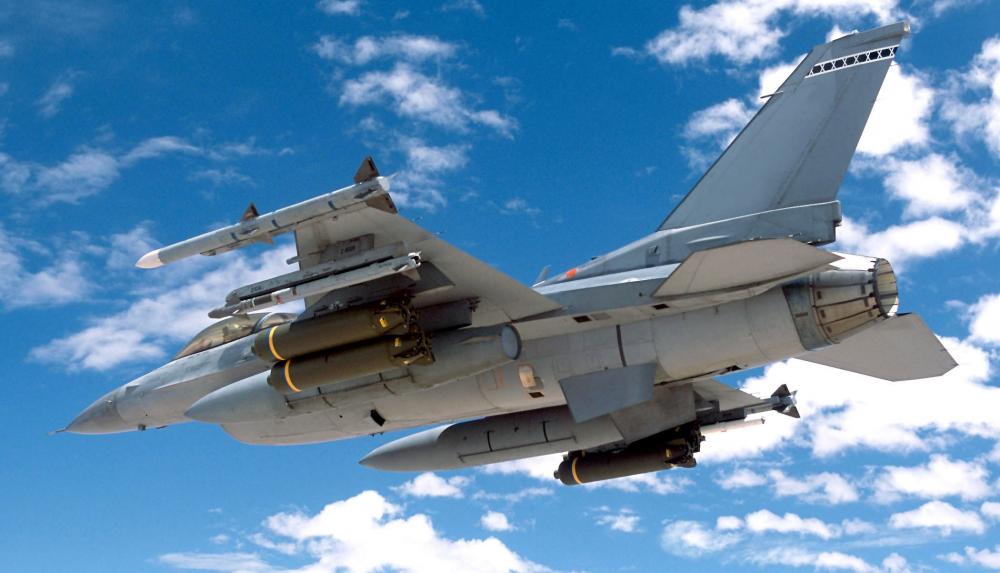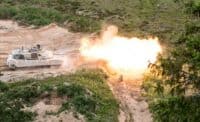

Last June, aerospace and defense giants United Technologies and Raytheon announced a merger, which was completed on Thursday, to create the world’s second-largest defense contractor. The new company, Raytheon Technologies Corp. (NYSE: RTX), began trading Friday and will retain UTC’s place in the Dow Jones industrial average.
RTX shares opened for trading Friday morning at $51 a share and had dipped a bit to $50.43 by late morning.
The $100 billion merger of equals created a giant with both a commercial and a defense side. About half of annual sales of around $74 billion are expected to come from each side of the company. The new company will employ approximately 195,000 people around the world, of whom some 60,000 are engineers and scientists.
Consolidation in the defense business got rolling more than two years ago when United Technologies acquired Rockwell Collins. Since then, General Dynamics Corp. (NYSE: GD), the country’s fourth-largest federal contractor, paid more than $9 billion for federal IT contractor CSRA, Northrop Grumman Corp. (NYSE: NOC) acquired Orbital ATK for more than $9 billion, and L3 Technologies and Harris merged to create a $33.5 billion defense firm called L3Harris Technologies Inc. (NYSE: LHX). UTC’s Rockwell Collins acquisition was never enough to put United Technologies into this league and it had to do something to keep from being marginalized.
At the same time that the RTX shares began trading, two former UTC firms began trading as separate companies. Otis Worldwide Corp. (NYSE: OTIS) began trading at $43.75 Friday morning and Carrier Global Corp. (NYSE: CARR) began trading at $13.75. Both were spun out of UTC as planned before the merger with Raytheon was announced.
The UTC-Raytheon merger was approved by the U.S. Justice Department last week with the provision that Raytheon divests its military airborne radios business and UTC hives off its military GPS and large space-based optical systems businesses.
The new company now has four main businesses: Collins Aerospace, based in Charlotte, North Carolina, and which reported about $26 billion in sales last year; Pratt & Whitney, based in East Hartford, Connecticut, with about $21 billion in 2019 sales; Raytheon Intelligence and Space, based in Arlington, Virginia, with about $15 billion in sales last year; and Raytheon Missiles and Defense, based in Tucson, with sales totaling about $16 billion in 2019.
The country’s two largest defense contractors are Lockheed Martin Corp. (NYSE: LMT) and Boeing Co. (NYSE: BA).
Essential Tips for Investing: Sponsored
A financial advisor can help you understand the advantages and disadvantages of investment properties. Finding a qualified financial advisor doesn’t have to be hard. SmartAsset’s free tool matches you with up to three financial advisors who serve your area, and you can interview your advisor matches at no cost to decide which one is right for you. If you’re ready to find an advisor who can help you achieve your financial goals, get started now.
Investing in real estate can diversify your portfolio. But expanding your horizons may add additional costs. If you’re an investor looking to minimize expenses, consider checking out online brokerages. They often offer low investment fees, helping you maximize your profit.
Thank you for reading! Have some feedback for us?
Contact the 24/7 Wall St. editorial team.


